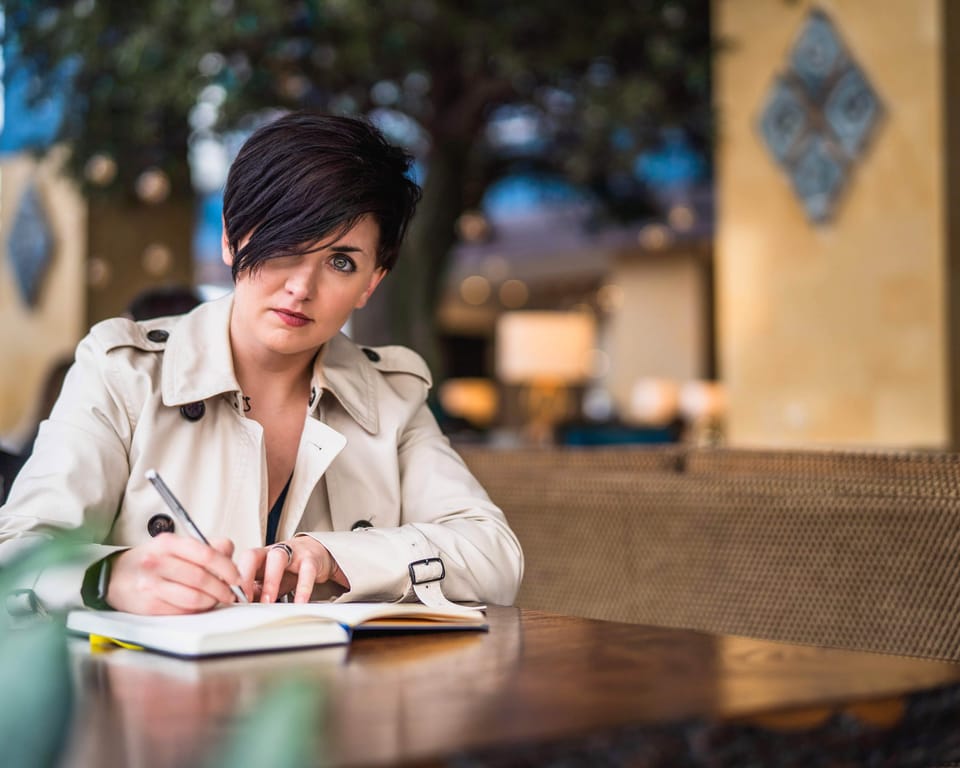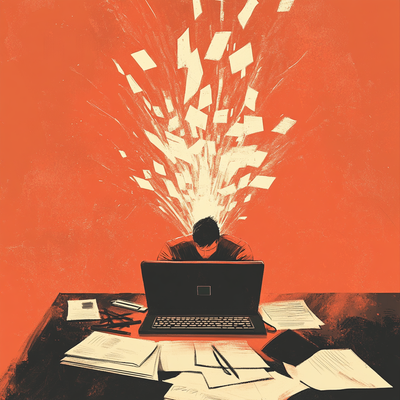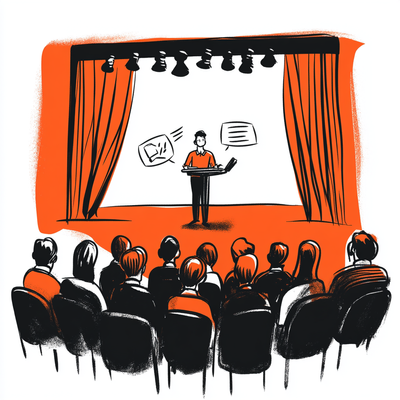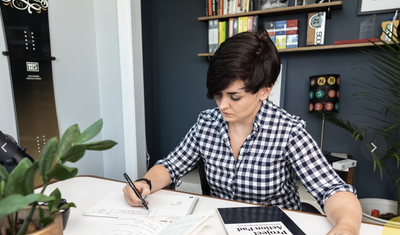
I never thought I'd find myself buying back the company I founded. But life has a funny way of bringing you full circle.
It was a sunny January morning, and I was sitting in my car, phone in one hand, squirming toddler in the other. With a few taps, I was about to make a decision that would change the course of my life once again. Just 14 months after selling BestSelf, the company I had poured my heart and soul into for seven years, I was about to buy it back.
As I clicked 'sign' on the docusign, a whirlwind of emotions hit me. Excitement, fear, nostalgia—all wrapped up in the realization that this moment, in my daycare parking lot. would define my next chapter.
When I sold BestSelf in October 2022, I thought I was ready for a new beginning. I had no idea that fate had other plans, that the story I thought I'd closed was far from over.
But that's the thing about entrepreneurship. It's a rollercoaster ride filled with unexpected twists and turns, where the only constant is change.
So buckle up and join me as I share my tale of selling, soul-searching, and ultimately, reacquiring the company I called my "first baby".
I'll take you behind the scenes of the negotiation process, share the lessons I've learned about business and decision-making. And show you the power of second chances.
Because sometimes, the greatest adventures are the ones we never saw coming...
Background
I sold BestSelf in late October 2022 after starting and running it for 7 years.
I spoke in my annual review a few weeks ago on the aftermath of the sale and trying to figure out what I've wanted to do next. It had been 14 months since the sale and I still wasn't sure what I wanted to be "when I grew up".
Then in mid-December the CEO of the company who bought BestSelf approached me and asked if I wanted to buy it back...
I can't go into too much detail (nor do I know very much) but the TLDR is that the main tranche of investment money promised never came. They were going to be shutting down. Part of this meant selling off all brands they'd acquired — which included us.
If you've been in the space or watching over the last few years then you know this has been a common story (hi Thrasio bankruptcy👋🏻).
Now when they asked if I wanted to buy it back, I didn't think I was interested. There were good reasons I sold it. And now there was no longer my team in place running the day-to-day. Almost all of them had left after their 6-month retention bonus.
But I kept the conversation lines open because I wanted the brand to continue so I explored options. I spoke with a few people I thought might be interested in running it if I took a minority position and continued to negotiate the deal.
Negotiation points:
• They were a very incentivized seller.
• They were being pressured by board to get assets off their books.
• No-one on their team had skin in the game as far as putting their own money into the buying us the first time. (no loss aversion to maintain higher price.)
• The company were already down to a skeleton crew running the business. It was going to be very difficult to sell to a random buyer as migration would be tough.
It was a great deal to negotiate because I had a unique situation that made me the obvious person to sell to. They could give me the logins and leave 👋🏻
With anyone else they'd need to do a transition period which would cost time and money. Someone once told me that the side that wins the negotiation is the one that can walk away.
Given I was lukewarm in the first place I was willing to walk away if the terms weren't right. I wasn't going to buy it back out of emotional attachment alone.
So I started to mull over how I could do it better this time.
My thought process:
Since the sale I've been messing around with learning to code, AI tools and automation. And different ways of using Chat GPT to manage cognitive load (which has been nothing short of magical.)
But it was difficult as I didn't yet have a business use-case to apply what I was learnin which limits how far I could go. I think this was a big reason why I felt lost. I love taking action of things but everything I was working on felt theoretical.
The best way to cement learning new skills is by applying them IRL.
What if I got BestSelf back and started applying what I'd learned into a real business use-case? Like a scientist in a lab experimenting. That sounded like something I would enjoy 🤔
Not to mention, every business I've started began as a side-quest from something else. Likely part of the reason I was struggling with finding a new thing was a lack of constraints or new problems.
When you boil it down, businesses are problem-solving machines. I was about to buy back a bunch of problems and one of those could become my next obsession. This may carve the path to whatever I decide to do next.
And if not, how do I negotiate a deal that makes it a no brainer even if that doesn't happen? A deal so good by itself that anything further down the line was a cherry on top. Protecting my downside.]
“Risk comes from not knowing what you're doing.” — Warren Buffett
The deal we ended up doing felt risk-free even to someone new coming in, nevermind me who had years of experience.
Conclusion
Now that I'm back at the helm of the company I founded. I can't help but marvel at the twists and turns that led me here. It's a reminder that entrepreneurship is a journey of resilience and adaptability. Of taking risks and seizing opportunities — even when they come in the most unexpected packages.
Reacquiring BestSelf wasn't just a business move. It was a chance to prove to myself that I could take the lessons learned and new skills to do things better this time. More on that soon...
(and it'll make a good story however it ends up!)
Become a subscriber receive the latest updates in your inbox.





